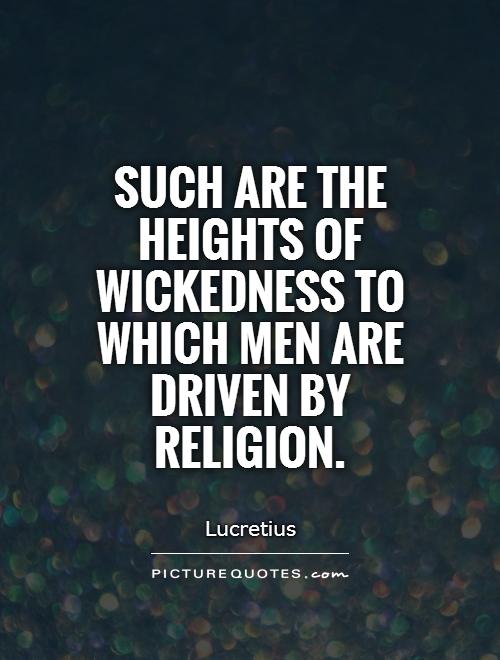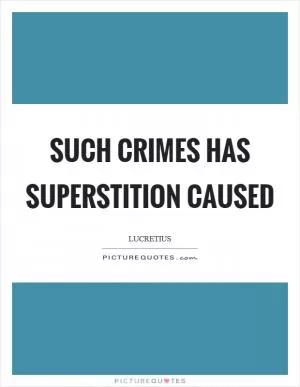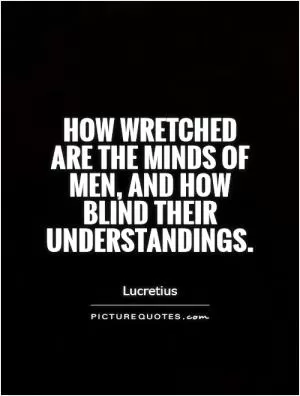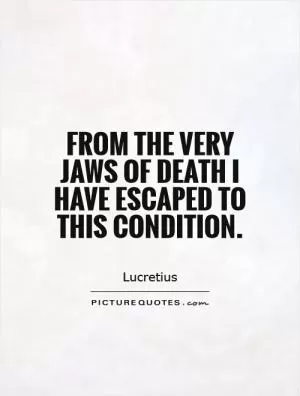Such are the heights of wickedness to which men are driven by religion

Such are the heights of wickedness to which men are driven by religion
The quote "Such are the heights of wickedness to which men are driven by religion" is a powerful statement made by the Roman poet and philosopher Lucretius in his epic poem "De Rerum Natura" (On the Nature of Things). In this work, Lucretius explores the nature of the universe, the origins of life, and the role of religion in shaping human behavior.Lucretius was a staunch critic of organized religion, particularly the Roman polytheistic beliefs of his time. He believed that religion was a source of fear, superstition, and irrationality that led people to commit acts of cruelty and violence in the name of their gods. In his view, religion was a tool used by those in power to control and manipulate the masses, leading them to act against their own best interests.
One of the key themes in "De Rerum Natura" is the idea that religion is a corrupting influence on human society. Lucretius argues that belief in the supernatural and the afterlife leads people to forsake reason and morality in favor of blind faith and obedience to religious authorities. This, in turn, can lead to acts of violence, persecution, and oppression in the name of religion.
Throughout history, we have seen countless examples of the ways in which religion has been used to justify acts of wickedness and cruelty. From the Crusades and the Spanish Inquisition to the Salem witch trials and the terrorist attacks of 9/11, religion has been invoked to justify some of the most heinous acts in human history. In many cases, individuals have been driven to commit acts of violence and oppression in the name of their faith, believing that they are serving a higher purpose or carrying out the will of their gods.












 Friendship Quotes
Friendship Quotes Love Quotes
Love Quotes Life Quotes
Life Quotes Funny Quotes
Funny Quotes Motivational Quotes
Motivational Quotes Inspirational Quotes
Inspirational Quotes